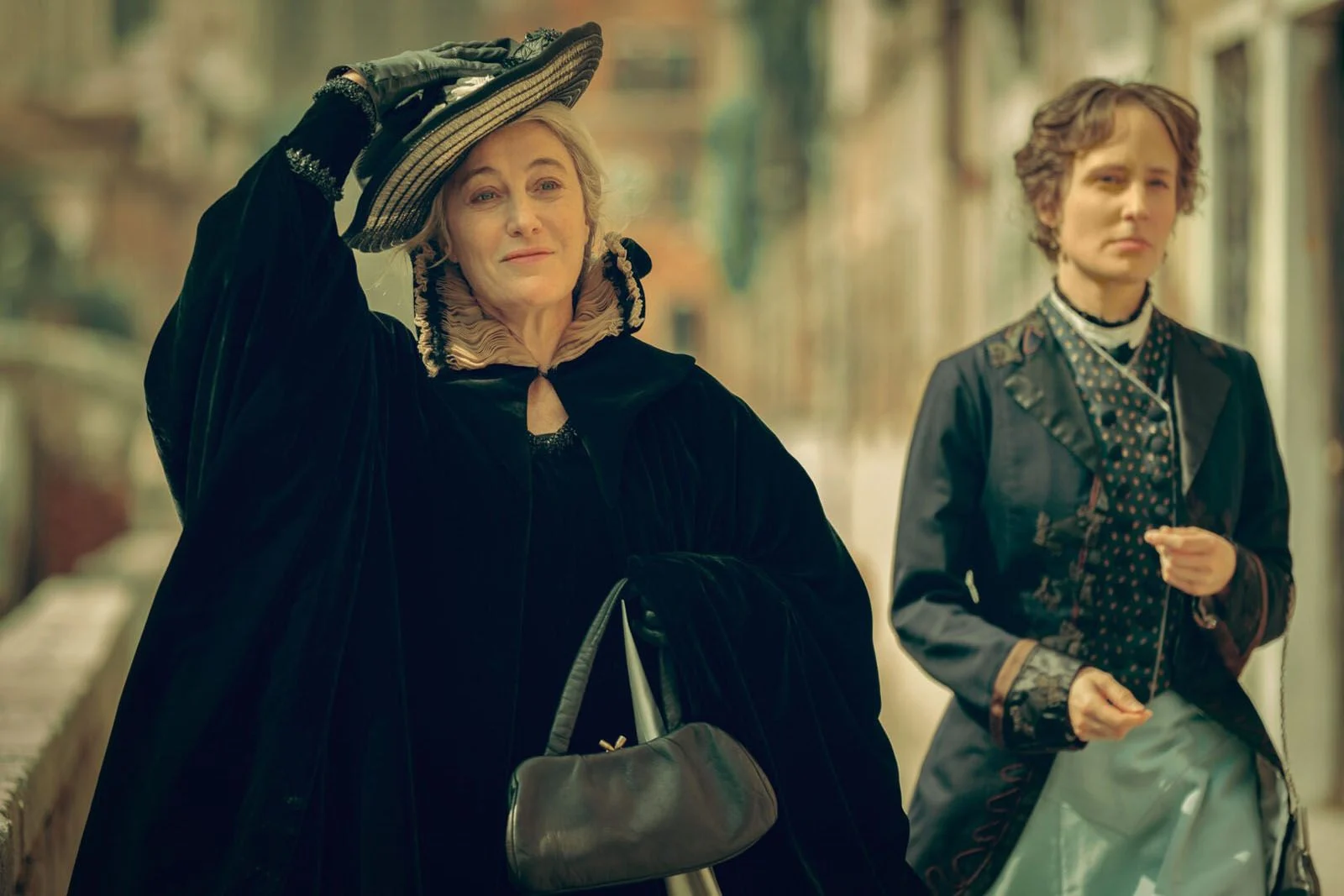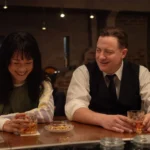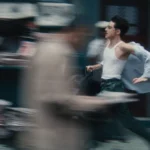Valeria Bruni Tedeschi leads an apt ensemble through the history books of theatre post First World War in Pietro Marcello’s unpredictable historical-drama-slash-biography Duse, a reimagining of the great actress Eleonora Duse’s later life as she made the decision to return to the stage despite a series of health scares. Amid its glorious costumes and set décor, Duse is underwhelming at best, a flurry of scenes arranged one after the other without rhyme or reason, and there is very little about the actual political and social climate that informed the period and Duse’s life. It is a shame, considering the marvellous life she led and the turn theatre took post-war.
After a spout of illness her close entourage don’t expect her to survive, Eleonora Duse sees the light – she will make her comeback, her close friend/ex-lover and writer Gabriele D’Annunzio (Fausto Russo Alesi) at her side. Also under her wing include her assistant Désirée (Fanni Wrochna) and fledgling writer Giacomo Rossetti Dubois (Edoardo Sorgente) – but as Duse grows tired of her traditional Ibsen and seeks something fresh to sink her passionate teeth into, her experimentation with new material receives very little success at all, much to the detriment of her health and relationships to those around her.
While predominantly a character study, Duse is also a period piece – yet, very little of the period actually manifests itself, so much so that I wouldn’t have batted an eyelid had I been told it was set in the nineteenth century. At over two hours long, it is incredibly undetailed, devoid of any political or social framework concerning the aftermath of the Great War and of the fresh tensions blossoming. On the contrary, all eyes are on Duse, transfixed by her and her talent: this might have worked had Duse not been so infallibly unlikeable as a central character. Irritating, infuriatingly naïve, prone to nonsensical outbursts and treacherous in the least attractive of ways, Duse is also, well, not convincing as the greatest actress of her time – how to prove this, when so little time is spent on her actually onstage? The closest we come to her genius is a particularly tense scene in which she draws out anger from an actress who shows her little respect during rehearsals – there is a hint, here, of the old generation teaching the new, the eyes of the young actress lighting up in the realisation of what she is capable of. But from there, Duse is featured taking to the stage only once or twice (acting within a film is, certainly, notoriously difficult to depict), after which she is celebrated with flowers and well wishes, much to our confusion.
The plot somewhat picks up again with her hot-and-cold relationship to her daughter Enrichetta (Noémie Merlant), “the love of her life” but also the first one she sends away from the theatre during her first performance. While she tells Désirée that it is because she does not wish to play this particular character in front of her own daughter, there is in the end never a true explanation as to why Duse spends so much of her life pushing Enrichetta away – this also notably creates a complex dynamic with her assistant-cum-adoptive-daughter Désirée, the side glances and slight smirks as Duse chooses one over the other an unpleasantness to behold. But the inevitability of the fact is that not too long can be spent on this, for there is Duse to focus on, along with her troupe of fellow actors, who are all given three minutes of screentime and half a backstory to go on (so that she may have another meltdown, of course). So much could have been explored in Duse’s life, from her affair with feminist Lina Poletti to her correspondence with D. W. Griffith. Yet, Marcello’s Duse is just a feeling, a flourish in a post-war dress. It is remarkable that the standout episode is one in which French actress Sarah Bernhardt sits her down post-performance and tells her that she is timeworn, hackneyed – “you know there has been a war?” she tells her, “and that war has changed love, has changed dreams”. Duse is performing in the past, playing the same old roles in the same old plays. Here at least, Duse seems to be speaking directly to itself.





